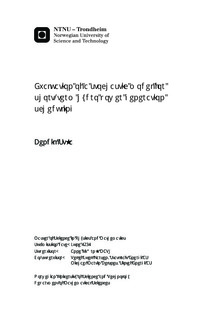Evaluation of a stochastic model for short-term hydro power generation scheduling
Master thesis
Permanent lenke
http://hdl.handle.net/11250/2400848Utgivelsesdato
2012Metadata
Vis full innførselSamlinger
Sammendrag
The objective of this thesis has been to evaluate the utilization of a stochastic programming model for short-term hydro power scheduling. The focus has been on the real-life application of such a tool. By considering a prototype of the stochastic model SHARM, which is based on the widely used deterministic SHOP model, it has been possible to use the same degree of detail as in the current operative scheduling. The work has been carried out at Statkraft, using real plants and operational data.
The expected objective function value obtained from using stochastic and deterministic day-ahead plans have been compared. A cascaded system has been run for 24 days in the winter depletion season with price uncertainty, and the results show a very slight increase in profit. Two systems have been run for 6 days in the spring flooding season with inflow and price/inflow uncertainty. These tests show no significant benefits, in terms of the objective function, of considering uncertainty in the construction of day-ahead plans.
The reservoir handling of SHARM on a test system, consisting of one large and one small reservoir above a plant, have been evaluated in the spring flooding season with inflow uncertainty. The results show that a stochastic model performs well in this situation, producing a robust plan that avoids spillage for all inflow scenarios.
Finally, the thesis has examined the computational performance of the SHARM prototype and the supplementary scenario tree construction and reduction algorithms. It is shown that reducing the size of the input trees reduce the solution time significantly, while still retaining much of the original information. The reduction algorithm seems to have good stability properties when considering stochastic prices.
